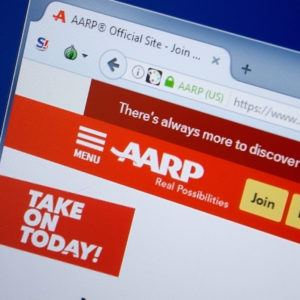After the U.S. Department of Health and Human Services (HHS) recently unveiled its finalized proposal to lower prescription drug costs by passing on rebate discounts directly to Medicare patients, seniors would rightly expect the AARP to be supportive.
After all, the organization is supposed to represent seniors and their interests.
According to the HHS, under the current rebate system: “Drug companies pay rebates and other payments to PBMs [pharmacy benefits managers], but these payments are not reflected in patient out-of-pocket drug costs.”
The reforms opposed by AARP would improve this opaque system and implement “point-of sale discounts [that] will lower out-of-pocket costs for patients using drugs with high prices.”
However, it didn’t take AARP more than a few hours to publicly criticize the proposal saying in part that: “AARP supports solutions that will lower drug prices for Americans 50+. The rebate rule finalized today isn’t one.”
Why would an organization that is supposed to advocate for seniors oppose a policy that saves them money at the pharmacy? A look at AARP’s financials reveals the answer.
AARP has become little more than a lobbying and advocacy arm of the nation’s largest health insurance corporation — UnitedHealth Group (UHG) and its wholly owned subsidiary, OptumRx PBM. In fact, in recent court proceedings, AARP admitted that there’s no requirement for it to “act with the interests of [members] in mind.”
AARP instead has a strong financial incentive to oppose policies that threaten the profit margins of UHG and OptumRx: Between 2010-2017, the organization was paid approximately $4.2 billion from UHG alone, stemming from AARP-branded healthcare policies administered by UHG and OptumRx.
According to researcher Chris Jacobs, “revenue from UnitedHealth constitutes nearly 40 percent of AARP’s entire budget — more than double the amount of revenue generated from membership dues.”
AARP stopped publicly reporting how much money it receives from UnitedHealth, but its recently released tax filing for 2019 shows the organization raked in more than $977 million in royalties, more than triple the amount it received in membership dues.
With this in mind, it’s little surprise that AARP would oppose an effort to provide rebates to consumers instead of PBM middlemen like OptumRX.
Instead, AARP wants to impose price controls on U.S. medicines to match those set by bureaucrats in socialist countries. This disastrous policy would threaten our best-in-class access, treatments, and scientific research, which has yielded more life-saving cures in the U.S. than in than any other nation.
Foreign price controls, like those supported by AARP, lead to rationing and impair healthcare outcomes for patients. “Government rationing and price controls on drugs are one major reason that countries with socialized medicine like the United Kingdom have lower cancer survival rates than the U.S.,” according to the Wall Street Journal.
Adopting the same failed price controls that have suffocated innovation and reduced access abroad is a policy prescription with disastrous side effects for America’s patients. It’s abhorrent for the AARP to support this policy while opposing rebates for seniors at the pharmacy counter.
Shifting the benefit of prescription drug rebates to seniors and away from pharmacy benefit managers will cut into the profit margins of mega-insurance corporations like UnitedHealth Group, so it’s no wonder they have summoned the AARP to attack this rebate reform policy.
And since AARP makes far more money from their corporate sponsors than from its own members, it’s no wonder they answered the call.

